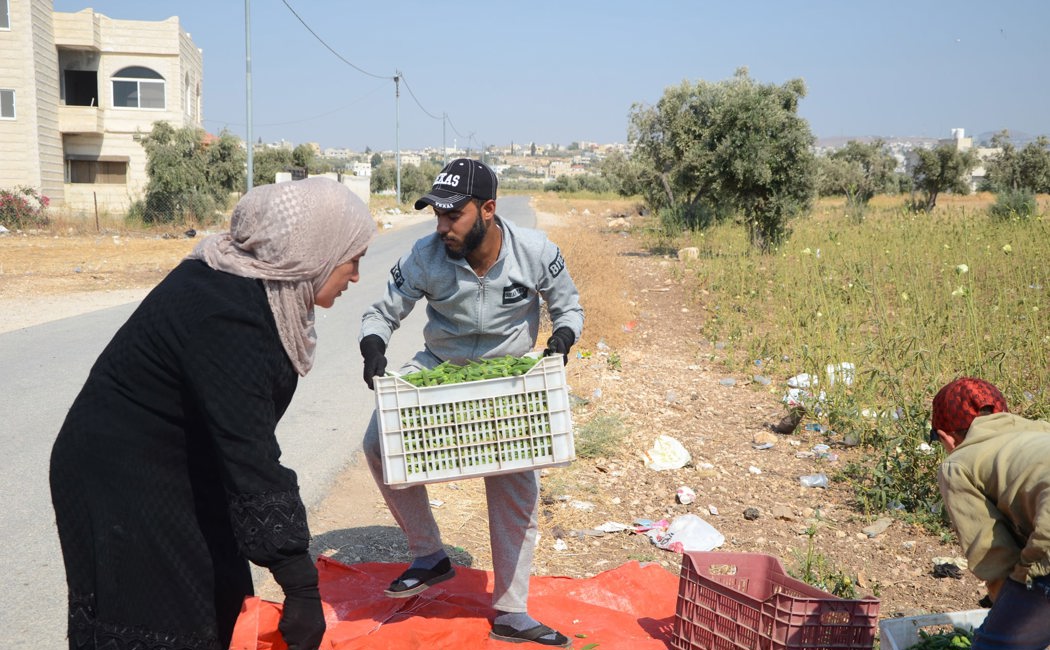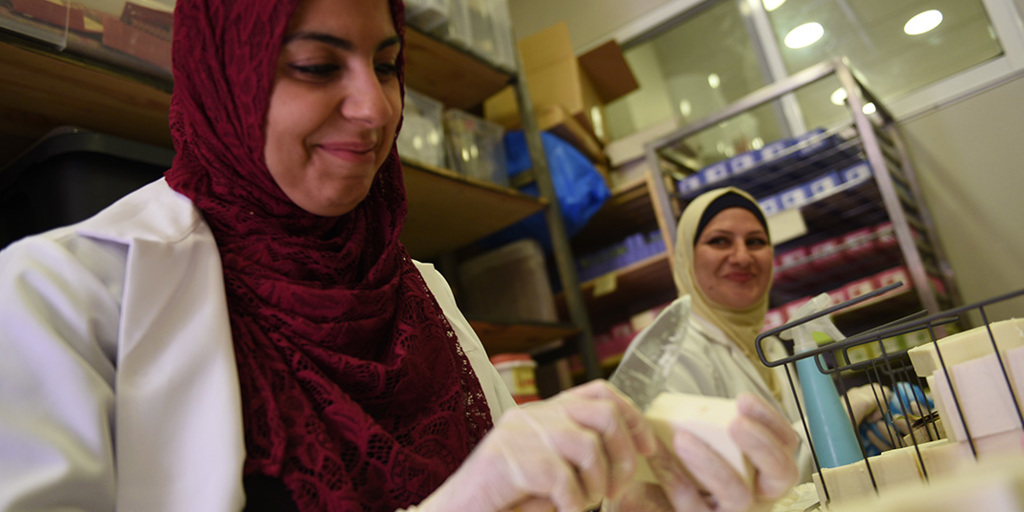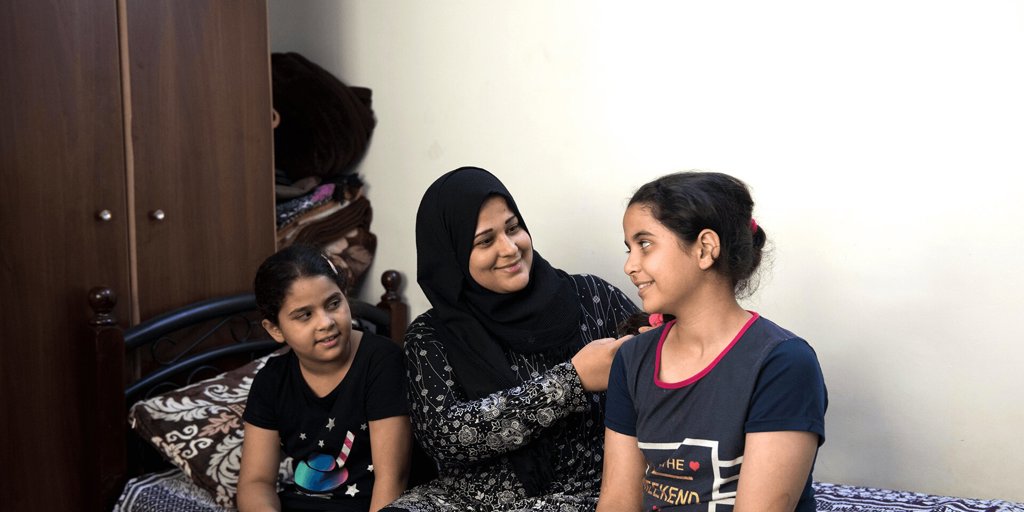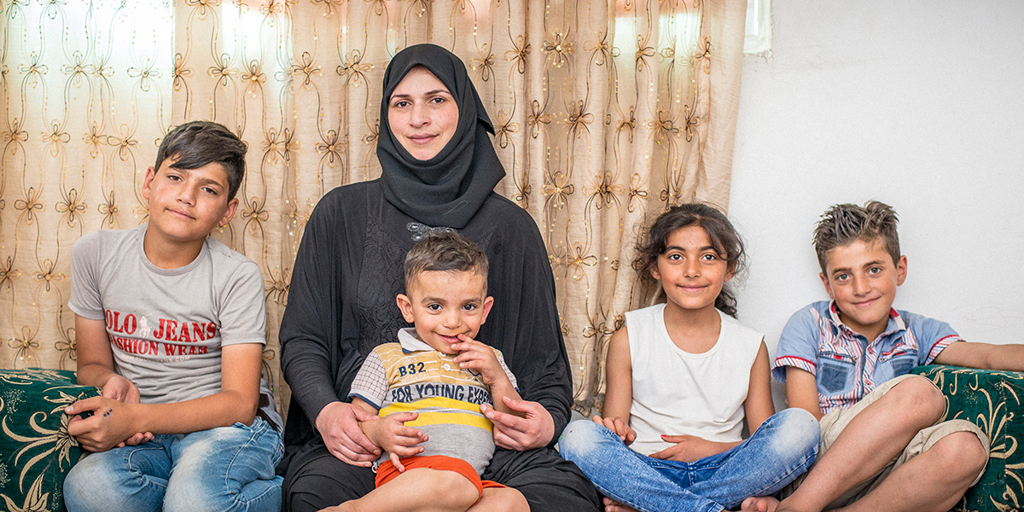One customer, Mohammad Bani Issa, buys from Layla every week.
“I’ve been coming here for two years, and I sell this in the central vegetable market in Amman,” he says as he weighs okra, before emptying it onto a plastic sheet to assess the quality and size. Within minutes, the two strike a deal and Mohammad loads 100 kilos of okra into his van for resale.
Layla has big plans for her enterprise. “I want to grow,” she says. She already works with 10 regular farm labourers – all Jordanians – and employs up to 30 at the height of the season. Experienced farm labourer Mohammad Jehad says he prefers working with Layla over his previous employers.
“With her, my job is regular, not occasional as before.” For him, it makes no difference that Layla is a refugee. “She is part of our community,” he says.
Despite her success, Layla remains humble and determined.
“I do this because I need to take care of my family,” she explains. Her husband has only found occasional work in a local supermarket and her three children, aged 13, 19 and 21, depend on her support.
Finding employment is a struggle for refugees. They are restricted to working in five sectors, including agriculture and construction. These can be difficult industries for women, culturally and practically – particularly for single mothers with young children.
Layla benefits from a flexible work permit allowing her to work for different landowners. UNHCR, alongside partner organisations Jordan River Foundation and Blumont, is helping refugees like Layla set up small businesses by offering training, mentorship and seed funding. Home-based businesses such as food processing, handicrafts and tailoring are particularly helpful for women, as they allow mothers to meet their family obligations while earning an income.
“It is heart-warming to see refugees who get the opportunity to thrive in a new environment and contribute to the local economy,” says UNHCR’s Head of Irbid Field Office, Subin Cho. “I am impressed by the power with which Layla has restarted her life. Now she is a respected farmer whose initiative helps several families in the area to find an income.”
The Leading Women Fund supports refugee women who are the heads of their household and struggling to meet rent payments and buy food. Your donation provides cash assistance, giving them more dignity and independence as they rebuild their lives.
















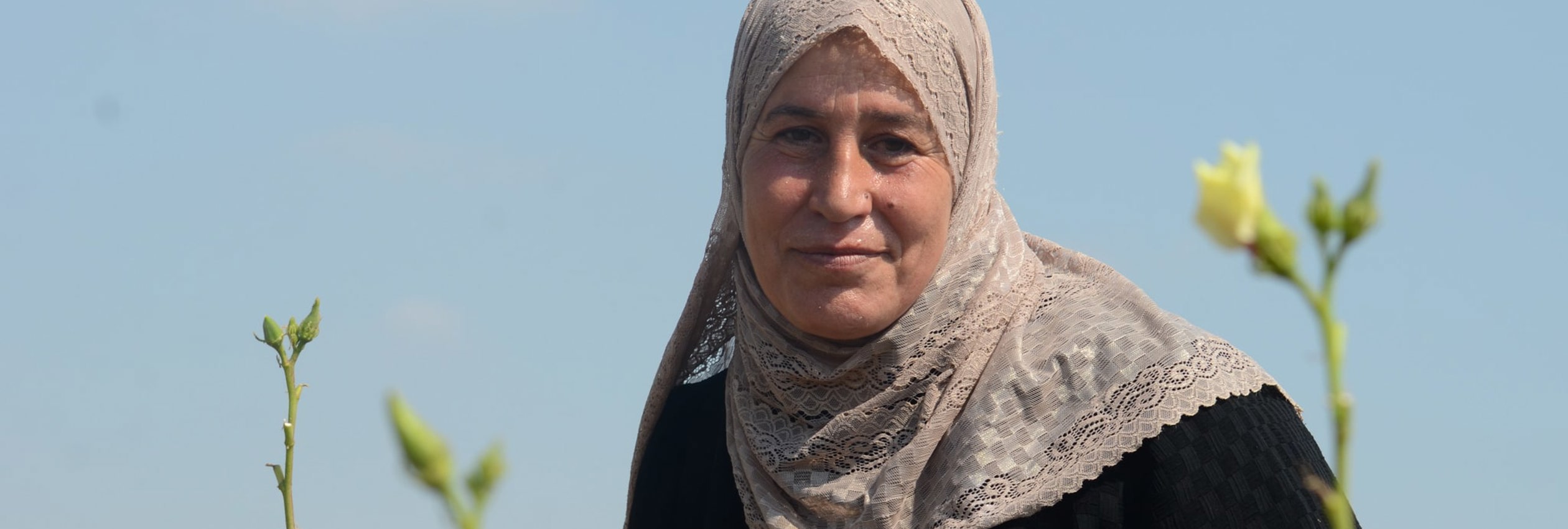
 Jordan
Jordan
